|
Score: 96/100 (9.6 out of 10)
Canvas of Healing by Suzette Welling is one of the most touching, powerful, and emotional novels we've ever read! That's really no hyperbole or exaggeration. This book is captivating as all heck, grabbing you by the throat and tugging you along on this winding, weaving journey of discovery and healing. This is one of the few books we'd categorize as un-put-downable, meaning you can't help but keep reading to find out what's going to happen to the characters next. For context, we haven't had our heartstrings pulled this hard by a book since Holocaust Memoirs by Hank Brodt & Deborah Donnelly almost two years ago. That was over 300 book reviews ago. That's saying a lot. What also says a lot is the score. A 9.6 out of 10 is the highest score we've ever given a fiction book, and only a handful of fiction books have achieved it. So, what exactly is it about Canvas of Healing that's so touching, powerful, and emotional? Well, it seems to come from a place of actual, real-life experience. In other words, it seems like these events—as crazy and unlikely as they seem—may have happened in one form or another to the author or someone they knew. This is, in a sense, a pseudo-memoir. Because it seems so real, so do the stakes. Furthermore, the characters seem so real and fleshed out. We haven't seen characters more real and fleshed out since Secrets in the Mirror by Leslie Kain. Canvas of Healing follows a character named Megan Hart who has just lost her estranged husband in a car accident. So far, this sounds par for the course, right? Obviously, Megan has some mourning and coping to do, as you might expect. What you might not expect are the huge secrets that Megan's husband, Blake, took with him to the grave, namely that he had secretly married another woman and even had a child with her named Blake Jr.! Surprisingly, this book isn't so much about mourning Blake as it is about dealing with the mess he left behind. We are constantly prodded with the question of whether or not Megan may have deserved this given how anti-social, selfish, and unlikable she quickly proves to be. Indeed, we see Megan essentially behave like a bully and even a manipulative liar to people at times, always saying and doing things to serve herself such as lying to the mission staff about her intentions and treating others with disdain. She is vindictive, hateful, and sometimes straight-up mean. However, she undeniably human. And you can't help but empathize with her and see where she's coming from. In other words, the reader really comes to understand why Megan is the way that she is. It's that understanding of her that still causes us to cheer for her and hope that things get better for her. No character grows more than Megan. It's that growth and gradual eroding of her less likable traits that makes her so interesting. The cast of characters in this novel is truly top-notch. We could probably write an essay about some of them. Let's first talk about Tabitha. Tabitha's enigmatic, tantalizing role as the other wife (or the other woman) instantly gives weight to her character. The book gradually builds to the epic, awkward encounter between the two women, Megan and Tabitha, and you're constantly on edge about how both will respond and react. At the same time, the author doesn't bore you and drag out the process longer than it needs to be. You actually get payoff pretty early on. In fact, you get a lot of different payoffs, climaxes, and reveals scattered throughout the book. Tabitha initially reflects our understanding of the other person, that mysterious person we imagine is sleeping with and/or manipulating our beloved partner. It's an archetype that many of us can understand as we've all had those feelings regardless of how secure a person we are. We've all wondered if someone was, at the very least, flirting with our lover. We all imagine them as the worst possible person—a monster, a demon. Yet, in reality, they usually turn out to be as human as we are. We'll leave it at this: Tabitha is a character who just might bring you to tears. We're also introduced to Blake Jr., Tabitha's child whom she had with Megan's husband. So, as you might expect, the situation is rather awkward and tumultuous. However, you can't help but feel like Blake Jr. is the last surviving bit of Blake, for better or for worse. He is an innocent victim of circumstance, robbed of a father and a normal home. There's also Samuel (“Sam”), the lawn guy who takes an interest in Megan when she is too blinded by vengeance and rage to see two feet in front of her. The will they/won't they relationship between Sam and Megan is one of the best relationships we've seen in a novel. It's absolutely heartwrenching, as is much of this book. Samuel was one of our favorite characters in the book. It's hard not to fall in love with him, although there are times when he is brusque and even one time when he lets anger show. Like with many of these characters, though, you understand his motivations. And the more you learn about him, the better a human being he becomes. His life and his relationships with the other characters provide some of the biggest surprises of he book. Another fabulous character who helps to give the book its name is Norma, the artist who selflessly provides Megan with a positive outlet for her negative and repressed feelings. Norma is the tough-loving, wise mentor that we all want and need. She reminded us of Della Reese's character from Touched by an Angel. Norma is eventually joined by a group of older women who rally behind and support Megan in her darkest times. There's also Denise, Megan's therapist, who is able to open Megan up to a lot of the feelings and traumas that she—as a closed-off, anti-social person—has repressed. Now, we have to say that there were a few times when we didn't like Denise. Yes, she's just doing her job and even seems good at it, but she almost causes a colossal mess with what we perceived as bad advice. It borderline becomes meddling at one point. There are times when a therapist (or any professional) should know when to stay in their lane. This is such an amazing, incredible book with clearly a lot of inspiration behind it. Now, there were a few things (other than Denise) that weren't perfect. For example, the book seems to end about six to eight different times, yet it keeps on going. Peak after peak after peak after peak. How many peaks do you need at the end of one book in a series? It becomes a bit much. There's only so much heartbreak our hearts can take. There are also times when conversations and events seem rushed or cut for time, which is actually admirable. The author knew that they didn't need to give us the full dialogue or description of events, that the audience was already smart to it and could follow well enough. Anyway, go and check out this book on Amazon!
0 Comments
94+/100 (9.4+ out of 10)
This is no exaggeration: The Fox's Tower by Tuula Pere may have been the most anticipated sequel that we've ever read! The first book The Fox's City was a previous grand-prize winner (scoring our highest rating for a children's book) and featured one of our favorite characters ever: Francis the Fox. Francis was named “Best Character” and “Best Villain” in our winter 2023 contest. So, needless to say, Francis was a character that we really loved (and despised) and look forward to revisiting. Who is Francis? Francis can best be described as an overly-ambitious, megalomaniacal, Machiavellian fox who always strives to achieve more and more and more, often to his detriment and those around him. Francis is far from a good character or role-model, yet he has some traits that are admirable. He is creative, ambitious, driven, hard-working, clever and an overachiever. Unfortunately, he's also cunning, manipulative, egotistical, and often selfish. Francis aspires to greatness—a greatness above and beyond everyone else in his vicinity—and he longs to accomplish this by any means necessary. Francis, in a lot of ways, is a cautionary tale of how not to go about things in reaching your goals. You shouldn't take advantage of people, manipulate people (and situations), and ignore sound advice by wise and experienced people. In the previous book we read (apparently there's a 2nd one in between this regarding a failed beach project), William the Wolf—the mayor—took Francis under his wing, forgave his trespasses, and tried to teach him how to be a better person and a better leader. What seems really unfortunate is that William's forbearance and mentorship of Francis seems all for nothing since Francis is the same scheming, cunning, conniving fox he was in the previous book, he's just bigger and older. Now, this isn't without precedence. In the first book, Francis ignored the urges and lessons from his mom to be good and to control his ambitions. So, we know that this is something that Francis often does. In this book, Francis repeatedly ignores the warnings and urges of the most experienced foreman in the city, Bernie the Badger. Bernie is adamant about following the plan (the “blueprint”) rather than doing things on the fly and impulsively as Francis does. Francis's dangerous impulsivity and recklessness are on full display in this book as he is driven to secretly change plans without telling anyone to advance his personal ambitions. This includes pulling support structures and materials from the walls and floors to build higher, his ultimately goal being to build the tallest tower in the city, one that reaches as high as the city's pigeons fly. He ignores or refuses to acknowledge the fact that he's slowly eroding the structural integrity and stability of the lower floors, essentially removing the tower's foundation in exchange for a few extra floors. Parents and teachers alike can talk to their children about making good choices rather than being impulsive and only doing what they want to do all the time. This is especially applicable to children who tend to be impulsive and who think of themselves as “invincible.” Children can learn to do a cost to risk assessment and evaluate if taking a risk is worth their health/safety or not. Once again, we were extremely impressed by the characters and the deeper, more nuanced things going on. We were also once again impressed by the art, which is among the best in a Tuula Pere book. Now, we will say that we wished that Francis's character would develop more, and that his arc/development in the previous book was more respected. He doesn't seem to have learned his lesson. Also, the ending of the book, while expected, is also quite abrupt. Francis is left speechless, and then the book concludes. The audience is left to assume what may have happened afterward or if he finally learned his lesson. All in all, this is such a great book and series. Check it out on Amazon! Score: 94+/100 (9.4+ out of 10)
A Butterfly's Song is another beautiful, heartwarming children's book by Tuula Pere, the most prolific children's author in our competitions. Tuula Pere always impresses us with the emotional depth of her characters. Her characters, by the way, are often very colorful in more ways than one! A Butterfly's Song follows a butterfly named Pupa who has just emerged from her cocoon. She is pale white, possibly an albino, and is self-conscious that she may not be as colorful, glamorous, and beautiful as the other butterflies. Making things worse, she also seems to have had a rough time coming out of cocoon, leaving her wings wrinkled. However, this may just be a natural things that new butterflies go through. In a lot of ways, this book is a cute little coming-of-age story. Kids experiencing puberty or going to their first school can go through these feelings of anxiety. So, once again, Pere has nailed creating a sympathetic character in a very sympathetic situation. Kids will definitely be able to relate to Pupa's struggles and journey to find herself. Another thing we really loved about this book is the art. We often say that a book's art isn't the Mona Lisa (and this book's art isn't the Mona Lisa), but we really fell in love with the genuine, hand-drawn, hand-colored look and feel. Everything looks like it was hand-painted, hand-drawn, and/or hand-colored. Something else that was very impressive about the art was the lighting. A great deal of this book takes place at night, and the illustrator comes up with clever ways to illuminate the scene and makes things colorful and lively. For example, the scene is illuminated by stars on one panel. This book is a parade of bright, beautiful yellows and blues, highlighting Pupa's extraordinary journey of self-discovery. Check this out on Amazon! Score: 90/100 (9.0 out of 10)
Taken by E.C. Roderick is a fun, well-written historical fiction novel. In the blink of an eye, a widowed American woman named Sylvie finds herself lost in the woods in the mid-1700s. Still wearing her 21st century garb, she is swiftly captured by a band of British soldiers in the American colonies and held captive as an alleged spy. This is a perilous, traumatic, and frightening predicament! The most prominent of her captors is Seamus, later known as Leif, who—despite refusing to release her—protects her from being mistreated by the other men and progressively forms a bond with her. Seamus and the other men quickly realize that Sylvie is no ordinary person. As a physician, Sylvie is able to save one of their comrades from an otherwise fatal gunshot wound using little more than some rum, pliers, and sewing equipment—MacGyver style. She is also able to use the Heimlich maneuver to save a nobleman, and several other such incidences that break the mold for the gender stereotypes of the day and also demonstrate her shocking capabilities. Sylvie must be brave, courageous, and have her wits about her as she navigates this foreign land and its strange customs in the midst of a massive conflict between France and Britain in the French and Indian War. It is a conflict which involves not only France and Britain but also the American colonies and the Native Americans. Sylvie finds herself smack dab in the middle of it all, seeing many different perspectives, learning all sorts of things, and experiencing the adventure of a lifetime. This book and this series hold a lot of promise, and are rather entertaining. However, there were a few things that didn't sit 100% well with us. For one, this is yet another Stockholm syndrome romance novel. We've seen so many of this stories that it's cliché at this point. Almost all of these novels excuse the actions of the captor because they have other motivations or are “nice” (relatively) to the victim. Yes, Seamus/Leif had his reasons—they were in the middle of a war with an apparent spy on their hands—but from another perspective, Sylvie has been kidnapped by a band of lecherous men who restrain her rather brutally with some even suggesting they want to sexually assault her. On one hand, this adds to the trauma and tension. On another hand, it's incredibly uncomfortable to read yet another book that plays with the idea of rape or sexual assault casually. We've read way too many of those and are kinda tired of it. The other thing we found both strange and funny about this book is that Sylvie, despite being a physician and graduating from Harvard (because of course she did), is actually incredibly dense and dumb. Yes, she can solve medical problems, but outside of that she has the IQ of a rock. It is absolutely ridiculous yet incredibly funny that Sylvie keeps believing that she's still in the 21st century and that the men who've captured her are actually Revolutionary War reenactors who've involved her in some sort of prank, movie, or social experiment. Seriously, she thinks she's in a movie! Yes, this is kinda cute and funny in a chick-flick or comedy sort of way, but it's also weird as heck and doesn't make Sylvie come across as intelligent at all. It's also hilarious when she sprouts medical and scientific terms and concepts that haven't even been discovered at that point, like when she tells the men to go get Motrin. She also gives herself away as a spy multiple times by not catching the hint that the way she talks and the way she constantly tries to show off her knowledge only make her look suspicious as heck. Sylvie is constantly victimized. She's constantly in peril. She's constantly being captured, taken, accused, and nearly sexually assaulted. There's something about that that reminded us of Pirate's Conquest by Charlene Centraccio, both featuring female protagonists who are constantly victimized. Anyway, though, this all works to an extent. It shows how the patriarchy dominated back then and how women were viewed and treated—to be seen but not heard. Sylvie clearly breaks that. Something else interesting is that Sylvie actually experiences some of the customs of the time including a three-hour Anglican church sermon that no one in modern times would sit through. Perhaps the most impressive thing about this entire book is the way that the author cleverly handled and portrayed the language of the 18h century. This is a really worthwhile book if you love historical fiction or fish-out-of-water novels. Check it out on Amazon! Score: 95+/100 (9.5+ out of 10)
Over the Fence is yet another outstanding piece of spirited and inspired literature by Debbie Schrack, a previous grand-prize winner and author of one of the books we enjoyed the most last season, Saving Sophie. Debbie Schrack is an excellent writer who crafts such interesting characters in tense and compelling situations. This book features two amazing protagonists in Eve (Katie) and Emma caught up in two different yet parallel conflicts, separated only by a fence—thus explaining the title. To describe a very complicated situation simply: Eve was once known as Katie, an innocent blonde-haired girl who was abducted by a cult led by a deranged lunatic named William Axel Anderson. Anderson is usually just referred to by the thoroughly creepy and menacing title “Papa.” Despite passing himself off as a Bible-following father-figure, Papa is absolutely despicable and terrifying: abusing and sexually exploiting Eve, whom he even forces to marry and consummate with him despite her young age. Every time Papa is on the page, your hairs will stick up and you'll feel cold, sweaty chills. He has convinced Eve that he has murdered her family, and it is strongly implied throughout the book that he is involved in a string of such murders at the hands of a “Goldilocks Killer.” Papa is effectively the main antagonist and villain of the novel, but he's not alone. There's also Emma's arc which follows her as she seeks justice against the man who left her sister, Mel, in a vegetative state and on the verge of death. The man responsible for Mel's condition is Jack Armstrong, the son of wealthy parents who owned the Armstrong Academy, and Mel's ex-boyfriend. Jack is effectively the other antagonist of this novel. One of the things that this book does really well is highlighting gaps in the justice system and the systems in place to protect endangered people like victims of kidnapping or child abuse. It also highlights how fear, scare tactics, and manipulation are used by the perpetrators to control their victims. One of the most frustrating things about how this story goes, reflecting real life, is how relatively light the treatment and sentencing of these despicable, dangerous criminals are when compared to the long-lasting and/or permanent harm they cause their victims. Someone might spend a few months or years in prison for a crime that ruined or ended a person's entire life. Some manslaughter cases end this way, as do kidnapping cases. Realistically speaking, some of these guys should never see the light of day outside a prison again. They are a danger to society and should pay for the harm they've caused. There should be no parole or leniency for these types of people: the worst of the worst. However, sadly, that's not how the system works. In fact, you could argue that criminals have more rights than their victims do. Anyway, what's interesting about this story is that despite there being two distinct stories going on with two separate protagonists and two separate villains, both are interesting and engaging. You never really find yourself wanting to go back to check on one scenario or the other. It's 50-50. You want Eve to find her freedom just as much as you want Emma to get her justice and to see her sister conscious again. One of the most heartbreaking lines in the book is when Eve says that she remembers how it felt to be truly loved and cared for by a real family. This shows that, despite the brainwashing process of the cult, memories of her former life still live on in her mind. Ultimately, this is a really powerful and heart wrenching story. It's tragic that anyone has to go through things like these girls, yet sadly there are terrible, awful people in this world. We need to be the good guys. We need to stand out for the weak and the defenseless. We need to advocate for victims. Check this out on Amazon! Score: 94/100 (9.4 out of 10)
We were delightfully and pleasantly surprised by Grave Secrets, a paranormal romance novel by Cassandra Aston! What's fascinating is that, on paper, the premise of Grave Secrets is rather cliché and generic: a tough yet naive teenage girl falls in love with a much-older and experienced humanoid cryptid (usually a werewolf or vampire). However, this book is so much more than some shallow Twilight knockoff. This book also reminded us a lot of two previous books we read: Sacred Vengeance by Evangaline Pierce (which also featured a main heroine name Allie and a major guardian-angel character named Gabriel) and Blood Relations by Glenn Stevens (which features an immortal vampire character whom every girl in town is attracted to due to an ability that he possesses similar to Simon in this book). With all that in mind, this book still manages to be unique, different, and exciting. We're not exaggerating when we say that this book really raised our excitement level and enthusiasm, especially compared to other books we read this week. What makes this book so good is the chemistry between Allie Graves and Simon. There's just something about that dynamic—that pairing—that's so tantalizing and intriguing. You just can't help but be charmed whenever the two of them are on the page or in a scene together. Even when they're just screwing around and having banter during tea time, you will likely find yourself engaged due to weight and luggage that the characters carry. Allie is a demon slayer/monster hunter, often referred to as a reash, obligated to a six-year term of slaying ungodly abominations. She is essentially a female version of Blade. She even wields a mystical sword that is also closely associated with her like Excalibur with King Arthur. The thing is though, despite being a badass with some butt-kicking abilities, she's also still a teenager and also still human. She's also a bit of a blue collar troublemaker for some reason, having to shoplift for food. This means that she's also a target of law enforcement due to developing a reputation of stealing. This is admittedly quite strange because her supervisor is the angel Gabriel and she is supposedly working for God. So, isn't there something in The Bible about not coveting another person's property? In other words, aren't there a few verses about not stealing stuff? Isn't it also a little weird or ironic that she can fight and slay all these demons/monsters yet can hardly handle the police or mortal humans? That might be the point. Allie is cool, capable, yet vulnerable. You kinda need that in a protagonist. Another thing to note is that Allie is a relative loner. She acts and behaves like a foster kid turned semi-homeless person. Complimenting her character so well is Simon, a sort of mythical creature we chose to interpret as a “night walker.” In other words, Simon is a humanoid creature whose consciousness is only active at night. In the day time, his body does its own thing, usually just sleeping. Simon is about a hundred years old, being alive in the 1920s. Being such, he knows quite a bit including about Allie's parents and grandparents. Simon is simultaneously a father/big-brother figure to Allie as well as a love interest for her. He is the only one who seems to genuinely care about her, want to spend any serious amount of time with her, and wants to protect her. Gabriel, on the other hand, seems to view Allie more like an employee or even a pawn, or at least that's how Allie feels. Gabriel comes and goes, giving her instructions and vanishing for months at a time. This book really does a good job at subverting our expectations and our typical understandings about angels, demons, and the relationship between good and evil. In this book, Gabriel the angel is the darker character who conceals information while Simon, the abominable creature, is seen as the good guy who is honest and open about everything. There are a few nice twists in this book that we don't want to spoil, but we will say that there is a really unique view of afterlife portrayed in this. Many people believe in a heaven and hell. However, this book takes the stance that there may be a place in between; no, not purgatory, but a place called Primoria—where some souls are transformed into abominations that can find themselves in the mortal plane. Another thing that this book gets right is the sexual energy. This book reads like a soft erotica at times, constantly fixating on the characters' curves, underpants, etc. However, it kinda fits. You get the idea that these character really lacked a sense of belonging and intimacy that a sexual relationship brings. So, instead of being weirded out by these descriptions, you'll likely find yourself happy and relieved for these characters. Check it out on Amazon! Score: 91+/100 (9.1+ out of 10)
Always Orchid by Carol Van Den Hende is the third exciting entry into the Orchid Blooming series. The series follows an orphaned Chinese-American woman named Orchid and her star-crossed lover, Phoenix. Phoenix, a successful businessman and twin who is already riddled with insecurities passed onto him from his father, lost multiple limbs in a horrific train accident. He had made a valiant attempt to save a homeless man from attempted suicide. Well, guess what? This book largely features Roy, that same homeless man whom Phoenix had heroically saved and sacrificed himself for. Roy is ultimately the new tritagonist of the series, a man wrestling with a lot of the same insecurities and questions that Phoenix and Orchid had in books one and two. Roy was once at the lowest point in his life and at the lowest standing on the societal hierarchy—a homeless, jobless, hopeless, lost case with nowhere to go and no one to run to. However, Phoenix's sacrifice changed him, causing him to pursue a life worth saving. Roy became a private investigator, and a rather clever one at that, armed with a lot of the smarts that one can only learn on the streets. Eventually, Roy becomes curious about the prospect of using his investigative skills to find the man who saved him. The problem is, he doesn't know who that man was or if he's even alive! That's right, all Roy has to find Phoenix are some scattered mentions in newspaper articles, links to a possible twin (Caleb), and his own wits. It's impossible not to get behind and cheer for Roy on his quest for truth, discovery, and gratitude. He wants desperately to thank the man who not only saved his life but gave him a second chance to start a new one. The book also continues to follow the core couple, Orchid and Phoenix, as they pass the one-year mark in their relationship. This shocked and surprised us because it feels like Orchid and Phoenix have been together for at least five years. Maybe it's the length of the books in this series or all the ups, downs, and crazy experiences that the two have had, but their relationship seems to have been going on for a lot longer than a year. Anyway, the couple is at a precipice—on the threshold of a huge move. Orchid is moving back to China, and Phoenix has the difficult choice of whether to go with her or not. Now, you'd think this would be an easy decision: the love of your life is leaving, so you would want to go with them, right? However, Phoenix is both a business owner with huge responsibilities and also disabled, which he feels would make him a burden to Orchid. There's also the issue of the cultural acceptability of a disabled person in China that Phoenix is concerned about. This seems to be a very understandable concern. Actually, this reminds us of a Confucian concept that we'd heard of related to the practice of lingchi (slow cutting), a brutal execution method used in China until over a century ago. This often involved the dismembering of a person (being executed) with the idea being that it would punish them in the next life as well as the current because altering your body was seen as an “unfilial” practice that would cause you not to be “whole” in the afterlife. So, you've gotta think that Phoenix, a well-educated person, would have that knowledge in the back of his mind and be concerned about how his disabilities (missing limbs) will be perceived by the Chinese. It's a nice and interesting little touch. Phoenix is far and away the most interesting, relatable, and sympathetic character in this series. Despite Orchid's name being in the titles of every book, Phoenix is really the heart and soul of the series, especially when you consider that it is a series dedicated to amputees who have lost limbs in combat or by other means. His feelings and thought processes, while uncomfortable and frustrating to read at times, are very understandable. Phoenix is actually a very dark and—at times—depressing character. He's also a character who heavily leans toward pessimism and negative thinking, where as Orchid is usually quite optimistic, positive, and hopeful. Now, Phoenix wasn't always like this. In book one, he was a pinnacle of a man: strong, athletic, smart, independent, and successful. His confidence seemed to be overwhelming, although we did get a glimpse into how self-conscious and even insecure he could be, largely thanks to his dad's unreasonably high expectations. It's the very fact that he lost a lot of that (along with his limbs) that made Goodbye, Orchid the most compelling book in the series. Phoenix had to relearn how to live, this time with the absence of limbs. This book continues that struggle and conflict. Phoenix often feels like he's not handsome/beautiful, desirable, or complete. Thankfully, he has people like Orchid and Rina to remind him otherwise. Speaking of Rina, she's in this book! Rina, Phoenix's ex-girlfriend, was one of our favorite characters in the previous books, and we actually fell in love with her and her chemistry with Phoenix. We hate to say it, but many of us vibed more with the pairing of Rina and Phoenix over the obvious one of Orchid and Phoenix. Rina really seemed to love and care for Phoenix, really being the first partner he had who ignored his disability and even slept with him in one of the most emotional, powerful scenes in the series. Rina, it seemed, helped Phoenix to feel like he was still loved and wanted even after Orchid had reacted as she did (because Phoenix's injuries reminded her of her parents' fatal car crash). Rina was, overall, a very good person who was caught between two people (Orchid and Phoenix) who needed to be together for the sake of the narrative. It was kinda unfortunate how that came about. Caleb, Phoenix's twin, also remains an active character in this series, continuing to serve as a foil to Phoenix, although to a much lesser degree. Phoenix and Caleb are all good, and any tension that existed in the previous books seems to have subsided. A lot of the intrigue in this book comes from Roy's quest to meet the man who saved him and the secrets he might hold that are relevant to Phoenix and Orchid. This book and this series come from a place of love and care. The author did a lot of research and actually interviewed amputees and war veterans who struggle with these types of issues. She even interviewed people who understood how courts work for the sake of one of the book's big surprises. We definitely recommend this book if you're into this sort of real-life, romantic drama. Check it out on Amazon! Score: 90/100 (9.0 out of 10)
Dar & Earth: Revelations is the much-anticipated second book in the Dar & Earth series by the brilliant Athena Kaiman. It continues the stories of Aelish, a magical being born on Earth in the 1500s, and Isabela, a child prodigy coping with her mother's battle with cancer. The first book really raised the bar and our expectations, scoring a 9.4/10. It featured beautiful writing, two compelling characters, and a lot of emotional depth. It also didn't get too much into the weeds of social/political commentary despite a slight leftist lean. A lot of times, we've found that getting too preachy or didactic with one's message can detract and distract from a good story and have the opposite effect on the audience, causing them to close their eyes and ears to the message. No one likes to be lectured. Ironically, much of this second book consists of lectures. Don't get us wrong though, this is still a solid to good book, it just wasn't as good as the previous book. It's similar to how nothing in the Rocky series could ever touch that first movie which won Best Picture on a shoestring budget. Nothing in the Star Wars series could ever exceed the original trilogy for its cultural impact. Similarly, this second book just can't top the first one. In all honesty, there was several things about this book that bothered us. In this book, the series seems to lose the impartiality and balance that was present in the first book. For example, we're now all in with more leftist/social justice warrior ideology. The book essentially begins with the council of Dar (made up of all females) talking about how terrible and careless the humans of Earth are because they've created a situation which has accelerated global warming and climate change. In probably the most disturbing and troubling line of the book, a council member makes the comment that the Earth isn't intended to sustain more than 2 billion people. So, are we going to get into a population control argument now? That's what always worries us when it comes to the argument of climate change. We acknowledge it. We want emissions to be limited. We want fossil fuels to eventually be phased out in favor of clean, green, renewable energy. Yes, yes, we get that. The problem we have is when climate change activists go from being “we love Earth and nature and want future generations to have an Earth to inhabit” to “there are too many humans.” What a terrible, alien thing to think. It's almost like these people have forgotten that they are humans. What we're saying is that some climate change activists go way too far with their ideology, essentially becoming more like Thanos from the Marvel movies in wanting to eliminate a portion of humanity to make the world more sustainable. Yeah, we don't dig that. We're somewhere in the middle. Thankfully, there are glimmers of balance sprinkled in here from time to time. For one, the very issue of methane gas is contentious because it is acknowledged that much of it actually doesn't come from humans, their factories, or their automobiles, but from bovines (cows). However, humans are still to blame for their meat and dairy consumption, because of course they are. The other issue that seems to be huge in this book is that of abortion. This is an uncomfortable and very heated issue for a lot of people, obviously. Aelish finds that she is now somehow pregnant with a human child similar to how her own mother was pregnant with her. This actually triggers much of the personal drama in the book with Aelish torn about what to do about the child, who can't survive in Dar's atmosphere and would force her to move back to Earth. She also wonders what her husband, Thagar, will think about the child. The book reiterates that it's her choice whether to keep the baby or not, although it does consider the big picture. For instance, even the Dar council becomes aware of the baby and are particularly interested in the fact that it's a girl (a potential future member of the council). Thagar's feelings are also considered. However, who even cares about Thagar? Honestly, Thagar might be the worse thing about this series. Mr. Telepathic Sex is such an unlikable romantic interest. He reminds us of Four from Divergent. We constantly find ourselves wanting him to leave the picture so we can read about Aelish and Isabela instead. Anyway, what's interesting about this book is that despite its left-leaning stance on climate change and abortion, it still seems to highlight the opposite perspective. For example, it really does seem that Aelish believes in the sanctity of the life of her unborn fetus, viewing her as a her and a daughter rather than just a clump of cells as pro-choice advocates often state. She even starts to associate the life and existence of her daughter with that of her late mom who was in a similar situation in choosing to have and raise her. So, that was refreshing. Another thing that we did not like about this book is that Isabela magically, suddenly transformed into a Mary Sue. Not only is she smart, she is often stated to be the “smartest person” on Earth. In fact, she is considered smarter than most of the geniuses in human history—at age 13! She is even accepted into medical school at that age and starts lecturing professors about science stuff. Geez Luiz, hold your horses. When did this series jump the shark? The first half of book one was so grounded in reality. It was powerful and emotional. There was a grittiness to it. Now, it almost seems like a fairy-tale or a comic book, something distant, absurd, ridiculous, and abstract. It's very hard to take these things seriously anymore. We could buy Isabela being somewhat precocious, clever, and intelligent. We could buy her being the top of her middle school or even high school class. But we're supposed to buy that she's possibly the smartest human being who ever lived (ever) at age 13? We're supposed to buy her grand standing and lecturing professors during their own lectures? We're supposed to buy that she passes the MCAT willy-nilly like it's no big deal with little to no effort? We have a prospective medical student among us. Do you know how doggone hard it was for them to study and train for the MCAT? How much time, energy, and money they spent to be able to attempt it? Seriously. It's kinda insulting. Isabela has suddenly become such an obnoxious know-it-all, and she's almost unlikable at this point. Now, it is kinda interesting that the power dynamic between Aelish and Isabela is somewhat flipped. In the previous book, Aelish was the wise one who was there to teach and guide Isabela. Now, it seems that Isabela is the wise one who often educates Aelish on science and how to be human in modern times. We're also introduced to a new villain in Glen, who unfortunately does not quite match Gidian from the previous book. In fact, Glen kinda reminded us of Jacob from the final season of Prison Break. Perhaps you'll see what we mean when you read it. Check it out on Amazon! Score: 94/100 (9.4 out of 10)
Dar & Earth: Oraculi is the heart-wrenching, heartwarming first book in the Dar & Earth series by Athena Kaiman. This book is surprisingly emotionally-charged and powerful, particularly in its first half, as it explores issues like personal loss, coping, death, and human suffering. It does so in a very compelling and captivating way, following two sympathetic characters living in two separate worlds and at two separate times, each experiencing feelings and emotions familiar to all of humanity. The first of these characters is Aelish, an Oraculi (a sort of special guardian/guide akin to a guardian angel or fairy godmother) from the world of Dar—a parallel realm with a mutually beneficial relationship to Earth. We quickly realize that, despite Aelish's bizarre lavender skin, lilac scent, centuries of wisdom, and magic, Aelish has very grounded origins on Earth. Aelish lived in Ireland in the mid-1500s, the daughter of the Earl & Lady of Brolaigh, Cian and Saoirse. Tragically, she lived smack-dab in the middle of a resurgence of the Plague, the “Black Death” (likely caused by the Yersinia pestis bacterium). The Plague spares no one regardless of social status. It quickly inflicts Aelish's high-born parents, and she is forced to confront not only their mortality, but also the apparent hopelessness of the situation and the crumbling world around her. Her religious faith seems not to help the situation, and neither do the plague doctors who are seemingly there for temporary relief and a payday. Paralleling this situation is the character of Isabela, living in modern times, whose mother is dying of an aggressive form of cancer. An experimental treatment gives her mother only a 10% chance of survival, a fact which hits her like a bag of bricks, especially when she realizes that the rest of her family hid this success rate from her. Isabela, a young woman, experiences an existential crisis similar to the one that Aelish experienced 500 years earlier. Like Aelish, Isabela becomes angry and disillusioned with both her faith in God and medical science, feeling that both have failed her. Something we really appreciated about this book is how fair and balanced it was in its approach to social, cultural, political, and religious issues. We are so used to these types of books forcing their activism and politically-charged messages down the reader's throat. Two such examples are The Cottage by William Thon and The Cat Who Fell to Earth by Nick Korolev, both of which are good books, but that are severely held back by just how didactic, heavy-handed, and preachy they are about the issues they're passionate about. Ironically, these two books share two common criticisms of humanity with Dar & Earth: humanity's reckless abandon leading to climate change and also how blind faith in a religion or belief system can stunt our progress. However, this book is far less didactic and in-your-face about these messages. In fact, they're mostly in the backdrop of an interesting, character-driven story. The other thing we loved about this book is that it really champions the idea of hoping when it's hopeless and keeping faith in ultimate good and purpose. Everything matters, even bad or tragic things. Nothing is pointless. That means that just because someone dies or just because we fail at something (like creating a cure in a timely manner), it doesn't mean that there was no point. Everything somehow, someway leads to the next thing. Progress is grueling and often slow. Centuries down the line, the Plague and Polio are afterthoughts now. Perhaps cancer can suffer the same fate and be a thing of the past. We can hope and aspire toward it. It's a very positive message, one that we hope this generation and future ones take to heart. The writing is also quite eloquent and beautiful. Athena Kaiman as a writer is clearly adept at her craft. Also, both Aelish and Isabela are compelling characters, ones who gripped our hearts at times. There are little, subtle things they do—little things they say and think—that make them seem real. For example, when Isabela loses her temper at her family, we get a glimpse into the guilt she feels over this and the fear she feels of repercussions from her grandmother and father. Also, when she gets out of the shower and makes a big deal out of drying her hair properly (knowing that her wavy Latina hair will get tangled into a tuft if not), it's very relatable. Many of us have experienced the same thing. Try showering and going directly to bed without drying your hair. Chances are it'll all be sticking up like an anime character's when you wake up. Aelish's thought process is also relatable. This is apparent when she is troubled by the injustice and savagery in her time and when she goes out of her way to give her parents a proper burial. Interestingly, these experiences carry over to when she confronts the corrupt and unscrupulous people who inflict Dar like Gidius, one of the novel's key villains. So much of this book builds toward a climactic meeting between the two main protagonists who are clearly kindred spirits. This book does seem to lose steam and momentum after that point, around the time when it becomes more concerned with the relationship between Aelish and Thagar as well as the circumstances on Dar. Unfortunately, something seems off about the relationship between Aelish and Thagar. The chemistry just doesn't seem to be there, especially compared to the other more organic relationships and bonds we've already seen between Aelish and Declan and Isabela and individual members of her family. In other words, the relationship between Isabela and her grandmother is far more interesting and compelling than the one between Aelish and Thagar, which seems more like a generic, somewhat-forced love story. The other thing that's somewhat funny is that so much of this book is ONE CONVERSATION held in the middle of night while everyone else in Isabela's home is supposed to be sleeping. Initially, this conversation is very interesting, but then it starts to drag and start to seem contrived. There's just no way that Isabela would just randomly mention the names of scientists and their medical findings. It just sounds more like the author talking than Isabela talking at that point. Somehow, someway, this conversation goes from, “Hi, my name is Aelish, I'm here to help you” to telling the entire history of post-Henry VIII England and Aelish's extremely twisty, turny resolution to the Plague by way of Dar. Now, Dar isn't necessarily a boring place. It's full of incredible things like magical waterfalls, griffins, and six-legged salamanders, but there's something about it that just doesn't feel as gritty and real as Earth. That's not to take away from the fact that Dar is great example of world-building complete with evil kingdoms, a matriarchy, and political intrigue. However, these things are just a lot less compelling than Aelish's situation in 1500s Europe and Isabela's situation in modern times. Honestly, it was hard to buy into and care about the Komprathians, the Drone Rats, Yasteron, Thagar, and Gidius. The problem is that we wanted to get back to Isabela and her family. We wanted to get back to a younger Aelish on Earth. It's not that the fantastical Dar stuff was bad, it just wasn't as good or as compelling as the real-world/Earth stuff. It also didn't sound nearly as natural or organic. With all that said, this book really is impressive. The two main characters are impressive. The writing, for the most part, is impressive. The world-building is impressive. Definitely check this out on Amazon! Score: 92/100 (9.2 out of 10)
This family is NUTS! Well, for literary and dramatic purposes, that's arguably a good thing. Following the Madigan family is like watching the Kentucky Derby, except all the horses (and jockeys) are trying to launch and slingshot each other Ricky Bobby-style while trying to trip and check their competition NHL-style. Actually, it's more like roller derby. This family just can't sit still or walk in a straight line. Hecate forbid one of these witches gets pulled over and has to do a sobriety test. The Cup by Marieke Lexmond is the highly-anticipated fourth installment in The Madigan Chronicles series following the aforementioned Madigan family, a family of witches and mages who are charged with securing the sacred, magical objects that hold the powers of the elements. This book centers around the relationship between two estranged sisters, Freya and Luna, as they attempt to work together to secure the Cup of Plenty, which holds the power over water. The tenuous relationship between Freya and Luna mirrors many of the sister relationships in the series like Lucy & Tara and Bridgette & Maeve. Similarly, Freya seems to envy Luna as the most powerful magic-user in the family and one of the prettiest. Luna is also put off by the prospect of not only seeing Freya again but also potentially working with her. Freya is haunted by a prophecy that she is given by Diane, the family's seer, that she will be on the precipice and be forced to make a choice. She soon realizes that this choice may be to support Luna on her quest, something that neither sister could imagine doing just the day before. Some seagull poop (perceived as a sign or good omen) changes that, in one of the book's most funny and charming moments. This book also follows Mara on a parallel quest as she reluctantly serves out her indentured servitude to Queen Mab (who we'll get to later). Lucy, one of the main antagonists of the series, continues to struggle to restore her powers, obtain the Cup, and battle her own internal demons from decades of ill feelings toward her family. Fin Madigan, Luna's son, emerges as a semi-major character who must embark on a perilous journey to the realm of Fairy to confront Mab, having to find a way to bypass the Ferrymaster, a being who demands the sacrifice of a memory to cross. The Ferrymaster also serves as somewhat of a major plot device or plot point as it helps to resolve why one major character has no memories of their younger years. Diane comes into direct conflict with The Fates, The Mother, The Crone, and the Maiden. One of the Fates seems to possess her and... well, um... get her to explore herself... sexually. This includes some sexual devices that she just so happens to have conveniently at hand. So, like, if Diane was so out of touch with her sexuality and intimacy, why would she have all of these sex tools conveniently at arm's reach? Anyway, these segments are partly awkward and partly funny. It reminded us of how over-the-top Mab's orgy was in the previous book. However, the funniest thing that involves the Fates is that someone makes the offhand comment that the Fates don't interfere. This is ironic (and kinda funny) because everything the Fates do in mythology is technically interference. That would be like saying that the working sewing machine doesn't sew, that the water isn't wet, and that the fire isn't hot. It's similar to the oft-mentioned statement that witches aren't good liars. Meanwhile, much of what the witches and Fin do involves hiding and twisting the truth (and their intentions) from their enemies. This is more ironic than anything, similar to the situation with The Fates and Diane, someone who can literally see the future. Also wandering around this book is Seamus, now a ghost, who has the ability to possess people if it means helping in a situation. Furthermore, there's some kind of romantic subplot with Maeve and Cephalop, the helpful octopus-man-like fairy, and another with Bridget and Wes, an artist who... is there doing boyfriend and artist things. The main weakness of this book by far is that there are just too many characters and too much stuff going on. It makes the book more chaotic, convoluted, and more disjointed than many of the other books in the series. It makes it pretty hard to follow, even on a second or third rereading. Some of the characters even comment on how crazy everything is and how they don't even know what's going on. Take this line by Bridget for example: “We're stretched thin here as it is... If it was only that simple. We're not sure what she's becoming. I can't send Maeve, as she must be after the Dagger. We can barely keep Hat open with our family left here. Fin has also disappeared on some sort of mission for Diane.” So, not even Bridget knows what the heck the other characters are actually doing. That's how crazy, confusing, and chaotic the whole thing is. By the way, the “she” whom Bridget is referring to, if we remember correctly, is a character named Gwen. We didn't even talk about Gwen yet, but Gwen seems like she might be developing into a major threat/future villain in her own right. Gwen seems to have become a sociopath who went from killing rats to killing stray cats to burning trees (which is somehow seen as a step up from killing cats, but... ok...). So, we have a whole villain origin story budding in the background while Lucy and Queen Mab, the villains of the previous books, are both vying for the Cup and all this other stuff is happening. The good thing is that we finally get a huge fight near the end of this between the previous villains. We're also introduced to quite a few interesting antagonistic characters in this. Along with Lucy and Mab, we now have the Ferrymaster, the Fates, and Gwen, all of whom stand against or threaten our characters in some way or another. By the way, Snowflake is a character in here charged with guarding the Cup in Greenland. See, we barely had time to talk about Snowflake until now. See how [overly]involved this book is? We didn't even mention all the dogs and other pets in here who all have names that you're supposed to remember. Thankfully, there is a character guide at the back of the book, which is actually somewhat helpful. Lucy, one of our favorite characters overall in the the last season, is the most human and vulnerable in this book. One of the most stand-out moments is when she encounters Mara and is actually happy/relieved to see her. By the way, did you know that Lucy had a kid with a fire demon? That sounds like something that would totally happen in this series and something she would totally do. Lucy is also separated from her body at one point in this book, and her body sustains substantial damage from scuffle with Mab, perhaps the highlight of the whole series. You can't help but cheer for her despite all the evil that she's done. Anyway, this is a terrific series about witchcraft and wizardry that really emphasizes familial relationships and drama. Check it out on Amazon! |
Archives
July 2024
Categories |


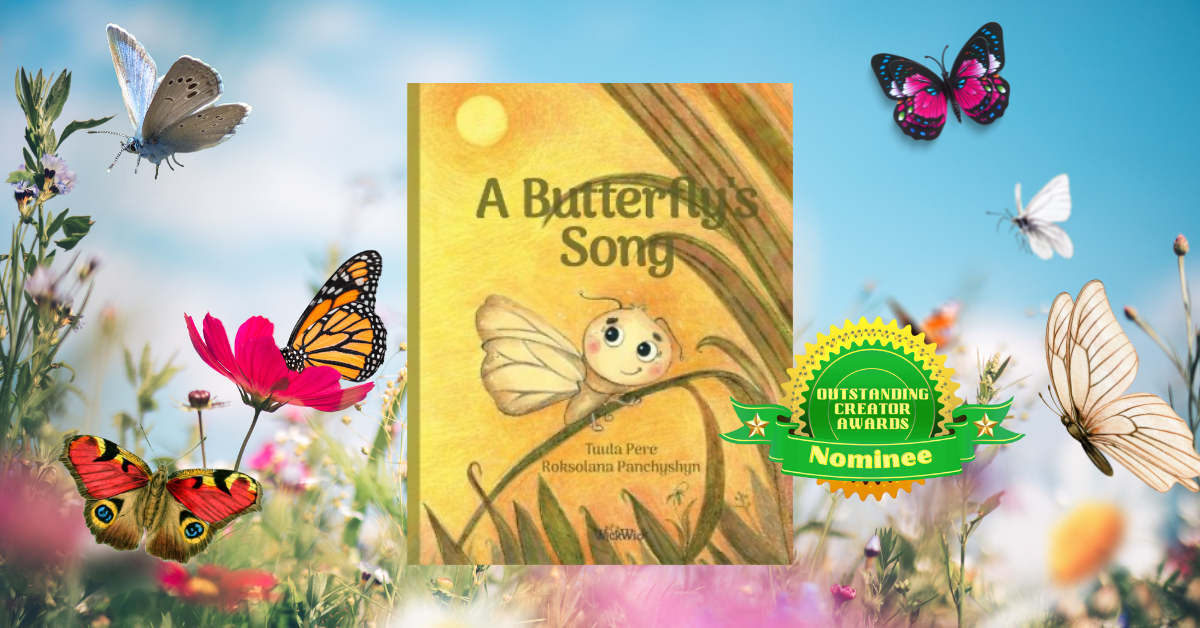
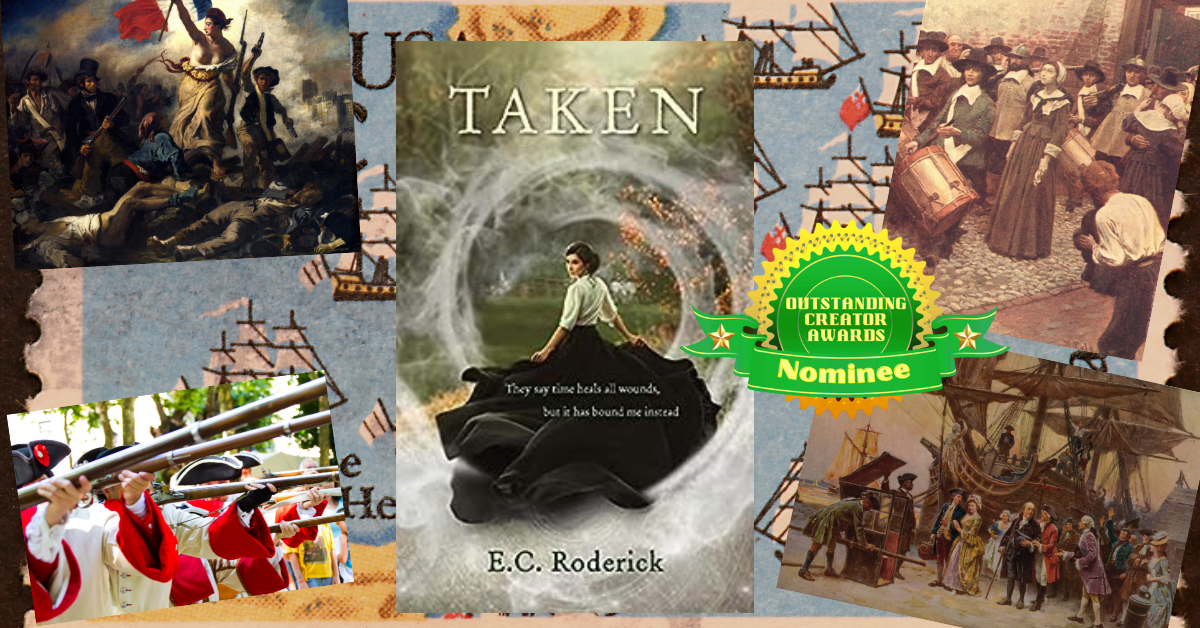
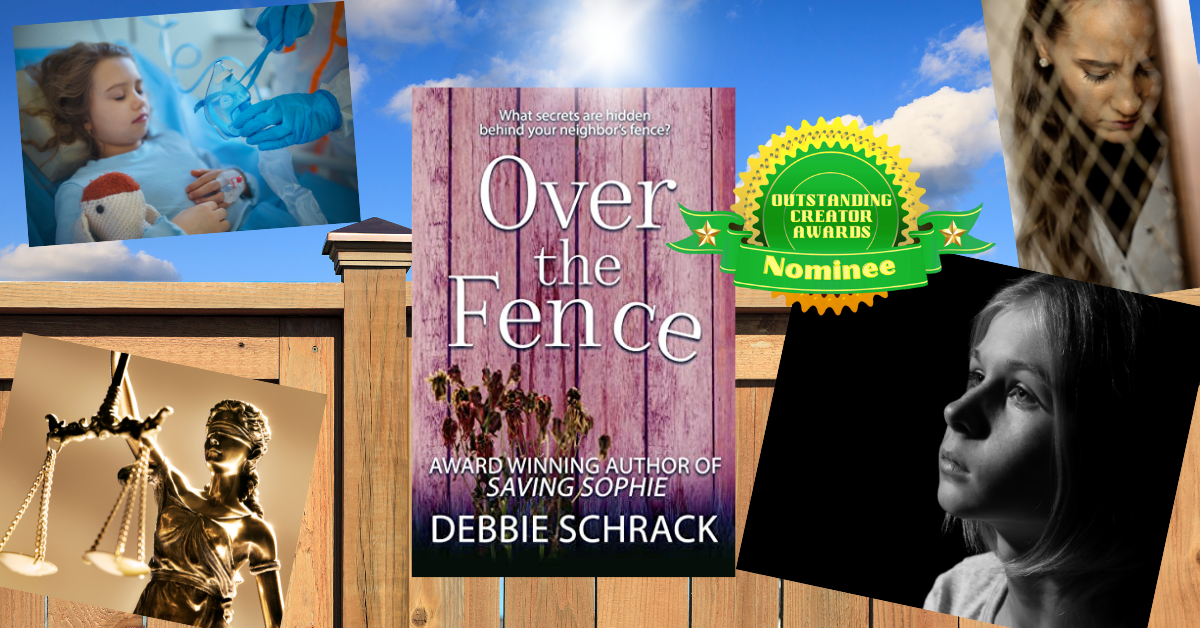
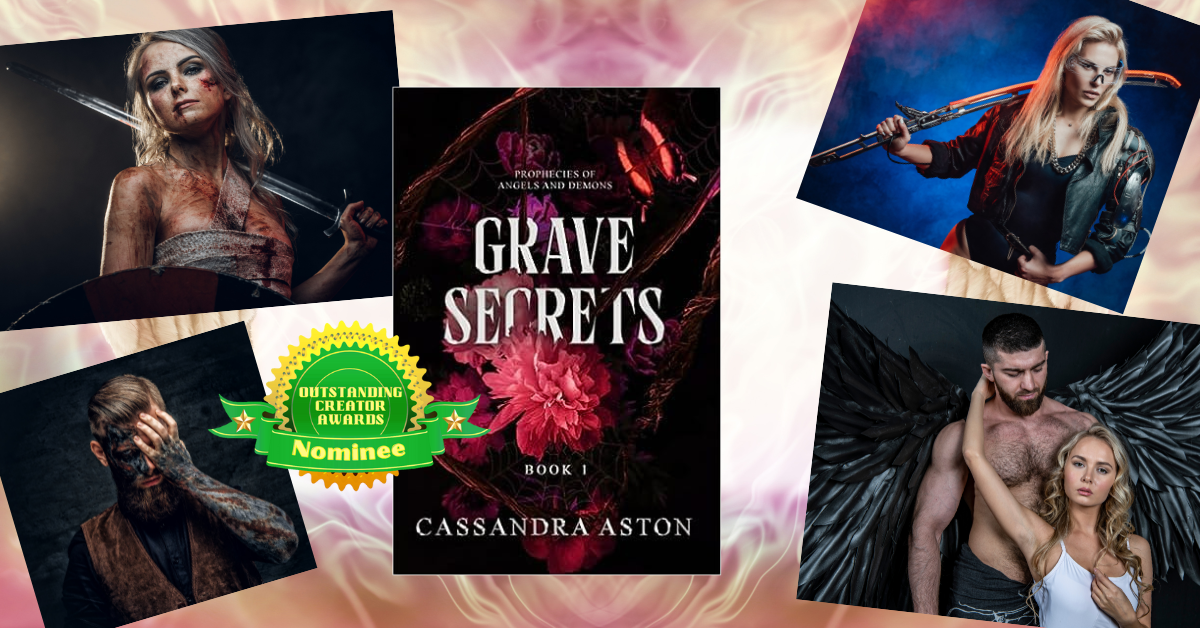

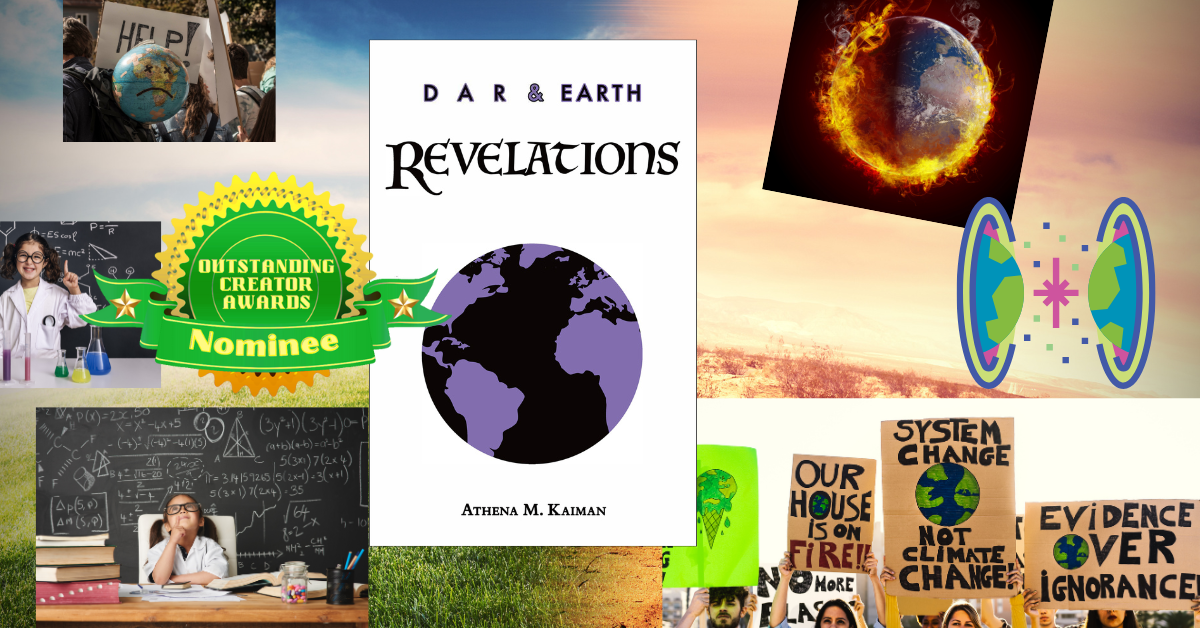
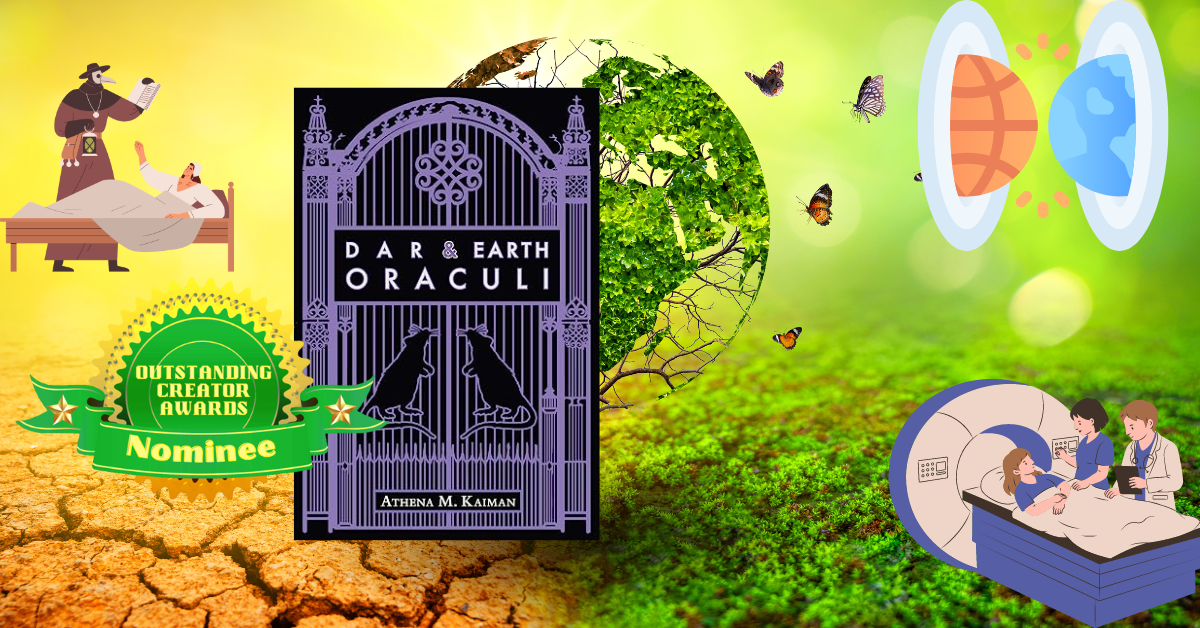
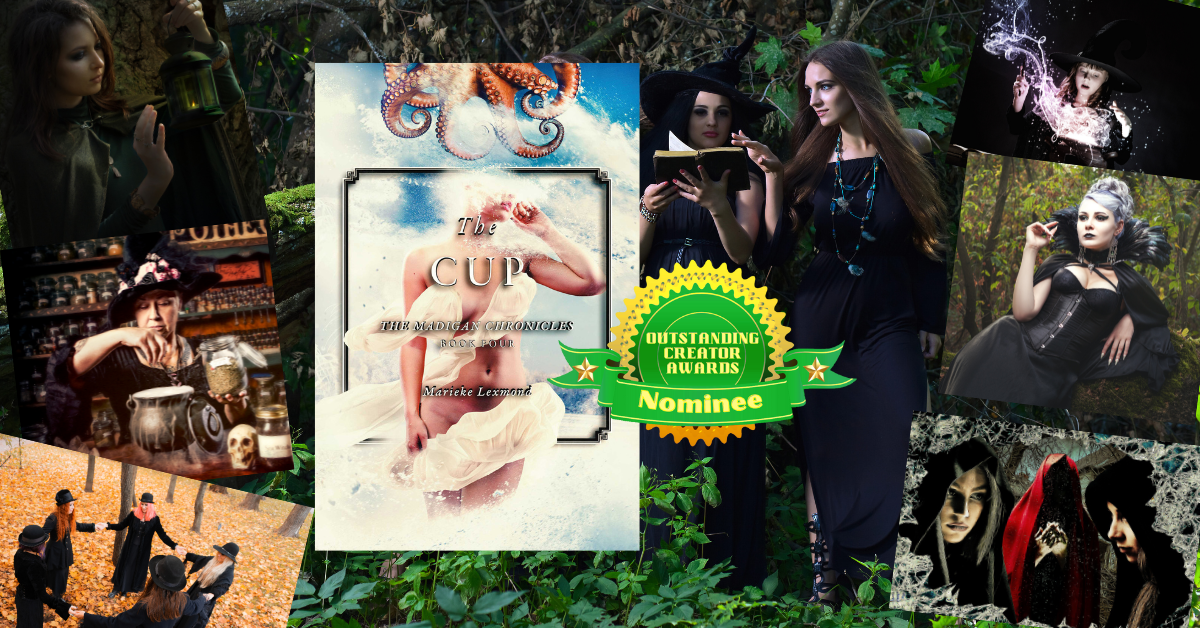
 RSS Feed
RSS Feed